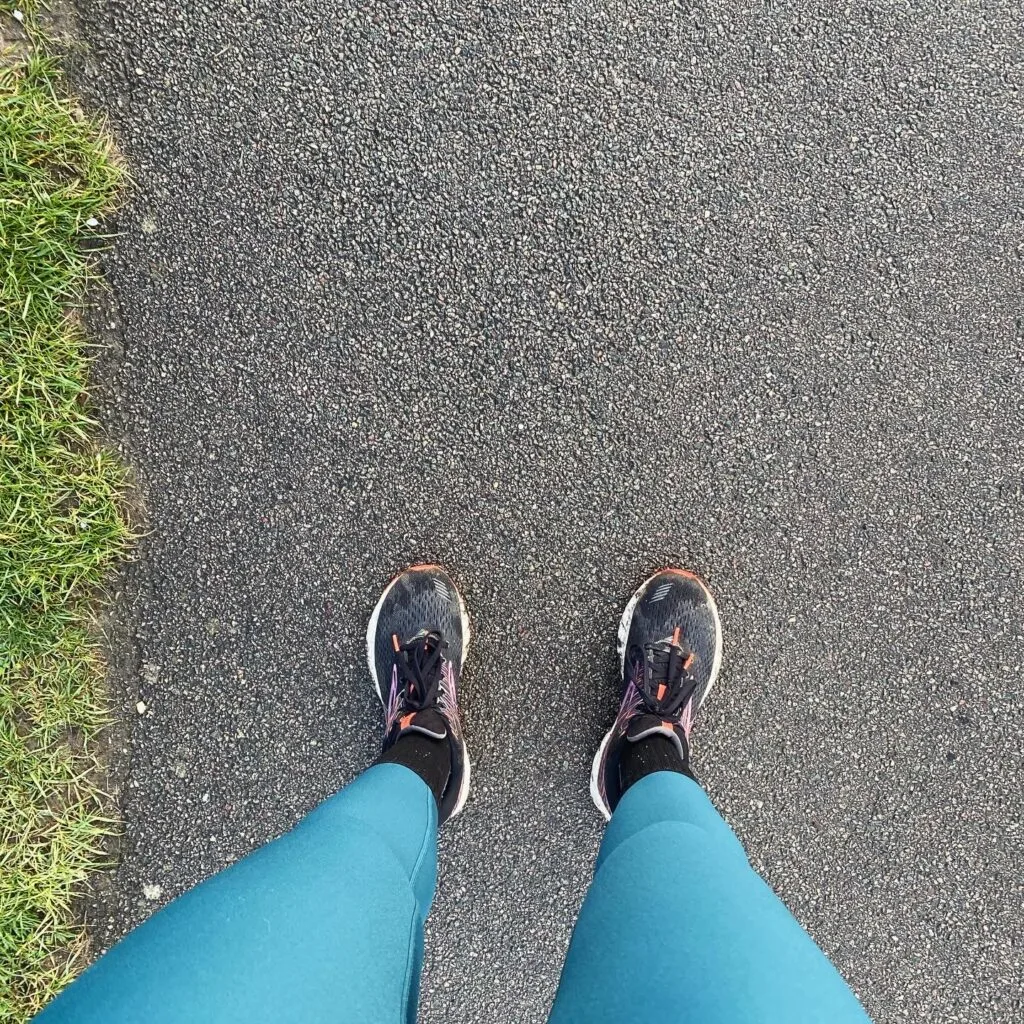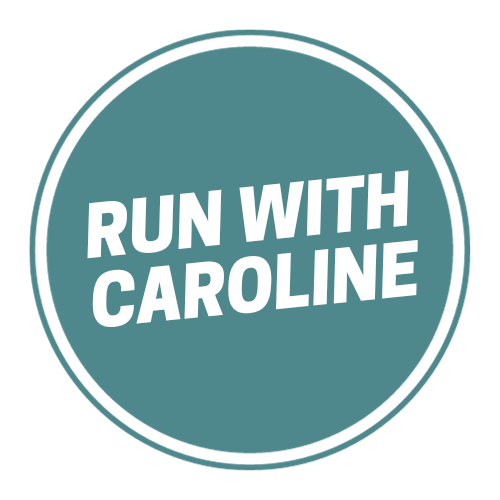You’d think that after 16 years of running, I’d be better at knowing what to expect when returning to running.
I’ve been a runner for all of my adult life, having started my love affair with the sport in childhood.
I was one of those kids who used to love PE and couldn’t wait to get my kit on and head out onto the playing field or athletics track, even during the winter months.
Being voted my secondary school’s most promising female athlete was a huge achievement.
In that moment I saw myself participating in athletics competitions all over the world. No one could stop me.
Then I started university.
In a matter of months all my dreams came crashing down as I became preoccupied with making friends and trying to fit in.
Soon partying, staying out late and wasting my weekends became more important than going for a run.
Not to mention my part time job in a local coffee shop.
When I finished university, I was determined to get my health back on track.
Years of drinking, poor food choices and late nights had not done my health any good.
It was then that I had my first taste of the ‘returning to running’ experience – and boy, was it hard!
Having not done an ounce of running for almost three years, my fitness (and confidence) had taken a huge hit.
Sure, I was in my early 20s, so the hurdle wasn’t as big as it would’ve been, say, if I was in my late 30s (my age now as I write this blog).
But it was still incredibly difficult to muster the energy to start running again and build back my fitness from scratch.
Since those days in my early 20s, I have returned to running time and time again over the years.
Sometimes after a self-imposed break, other times (and more often than not) after a bout of surgery or illness (in 2018 I was diagnosed with endometriosis which has affected my health).
Throughout all of these experiences, I have learned a few things when it comes to running which I’d like to share.
For the reason being that I hope you can learn from my experience!
Whether you’re returning to running after an injury, having a baby, a mental health break – whatever the circumstances may be – let’s all support one another on this journey they call running.
Let’s get stuck in!
Related: The magic of the easy run: Why they are crucial for stronger and happier running

5 things I wish I’d known before returning to running
#1 That you haven’t completely lost your fitness
I’m sure you can agree that when you first lace up your running shoes when returning to running, you convince yourself that it will be a difficult experience.
Laboured breathing, sweaty pits, chafing in all the wrong places, sore joints – the list goes on.
Yes, granted, the first mile is pretty challenging, after about 10 or 15 minutes or so, it does start to get easier.
Then you start to realise that actually it’s not that bad at all and you slowly get back into the swing of things.
It’s like you’ve never been away!
In the sports world, they call this ‘muscle memory’.
According to Masterclass: “Muscle memory is a neurological process that allows you to remember certain motor skills and perform them without conscious effort.”
Adding: “Muscle memory and motor skill learning can help you master complex skills, such as playing music, and everyday tasks, like typing on a computer or riding a bike.
Muscle memory ensures that you do not need to relearn how to do something from zero. When you take an extended break and come back to a skill, your body will still remember how to perform it.”
More importantly, in the athletics context, muscle memory allows you to take a break from training and competing.
Although your muscles and the neural pathways will weaken during a break (because of disuse), when you resume training, you can return to your previous athletic state and gradually regain muscle size without having to start from square one.
Of course, there are exceptions and limitations to this theory – in that it depends on how long you stop running for.
If you took a very long break (let’s say years) it will take longer to recover your fitness and get back into the swing of things.
However, if you took a short break (a matter of months), then recovery won’t take very long.
So, next time you go for a run, think of all the months and years that you already have under your belt and use these to your advantage.
You’ll be safe in the knowledge that you’re not starting completely from scratch, and that you have something to work from.
Related: Running 20 minutes a day: Benefits + how to start

#2 That you don’t have to prove anything to anyone
Certainly, when I was in my 20s I always used to think I had to prove something to someone when returning to running.
Prove that I could run at a certain pace.
Prove that I could run for a certain amount of time.
Prove that I could run 3 to 4 times a week without becoming tired.
When I look back on those times, they make me sad because they took all of the fun out of running.
I was so preoccupied with living up to those expectations, that I forgot to stop and actually look at what I was achieving and doing on a day to day basis.
Sure, it’s good to have a some healthy competition – we’re human after all – but don’t make your running experience all about this as you will quickly become disillusioned.
It was only until I started to embrace running for what it was and actually do it for me and my goals – that’s when I really started to enjoy it.
And this in turn gave me much more motivation and drive to go running each week.
Now, when I plan a run, instead of stressing over pace and distance, I think about what I will get out of it in terms of how it will make me feel and the experiences I’ll get out of it.
Watching the sunrise, hearing birds chirping, feeling the wind on my face, spotting wildlife, stopping at my favourite coffee shop on the way home, taking a hot shower after my run – these are my prizes now.
Related: How to run your first 2 hour half marathon

#3 That you are allowed to enjoy the process
I feel like sometimes that running, much like going to the gym, has a PR problem.
So many people see it as a way to punish their body, as a way to punish themselves for eating poorly or for watching too many hours of Netflix.
As soon as you adopt this mindset, running becomes a chore, not a form of enjoyment.
It’s about time we changed our relationship with running (and with any form of activity that is designed to get your body moving, for that matter).
The fact that you can even run is a huge gift in itself.
And your body is an amazing instrument that is capable of some pretty amazing things.
So instead of going for a run and simply seeing it as an activity that you need to tick off a never-ending to do list, embrace the entire experience.
- Embrace your running gear and how it makes you feel.
- Embrace your new pair of running shoes.
- Embrace how the wind and sunshine feels on your skin.
- Embrace the endorphins surging through your body.
- Embrace the post-run high.
- Embrace the sense of satisfaction that you will feel for the rest of the day.
Personally, as soon as I started breaking down a run into these components, I started to realise how pretty ‘effing amazing running is and how much I loved it.
Related: 6 tips for successfully running with a chronic illness

#4 That you should be proud of how far you’ve come
When you first return to running, you feel like a big fat failure.
Everything feels hard and you convince yourself that you’ll never be the same runner that you were pre-break.
Sometimes you’ve just got to remember how far you’ve come.
There are valid reasons why you had to take a break from running.
Whether that be to have a baby, deal with family problems, grieve for a loved one – the list goes on.
In my case, I had to take a break from running to keep on top of a chronic illness (endometriosis) and have multiple rounds of surgery as well as IVF.
I had multiple rounds of IVF followed by three rounds of surgery in the space of three years, so my body was in and out of hospital and fertility clinics too many times than I care to think about.
Running fell to the bottom of my priority list – but I kept telling myself that it was ok as my body needed time to recover.
I tried not to criticise myself for not going for a run every weekend or participating in Parkrun every Saturday morning.
Instead, I reminded myself that I’m going through some pretty tough sh*t, and although it may not feel like it now, it will get better and that I should still have hope.
Now I look back on those days, I’m glad I kept the faith.
I am so incredibly proud of how far I’ve come and you should be too if you’re reading this and on your returning to running journey.
Related: 101 thoughts every new runner has when running

#5 That you’ll overcome whatever life throws at you
Life throws some pretty big curve balls at you sometimes, and it’s what you do with these curve balls that matters.
They can break you or make you stronger.
Throughout all of my health struggles, I knew my life would be a darker place without running, so I knew I would be running again, but I had to focus on getting better first.
It’s ok to cry, it’s ok to scream, it’s ok to stay in bed on a Saturday morning wishing you were someone else.
But don’t lose hope! And please don’t give up!
We can be pretty resilient when they need to be.
Life does its best to throw you down, but I know you’ll try your hardest to get back up again, albeit with a few more scratches and bruises each time.
Related: New year, new you: Try this 28-day beginner running challenge
- 5 things I wish I’d known before returning to running - March 3, 2024
- Running 20 minutes a day: Benefits + how to start - January 27, 2024
- How to run your first 2 hour half marathon - January 16, 2024
